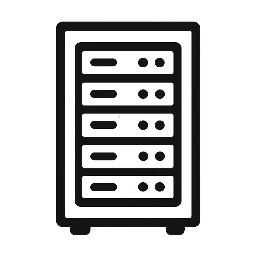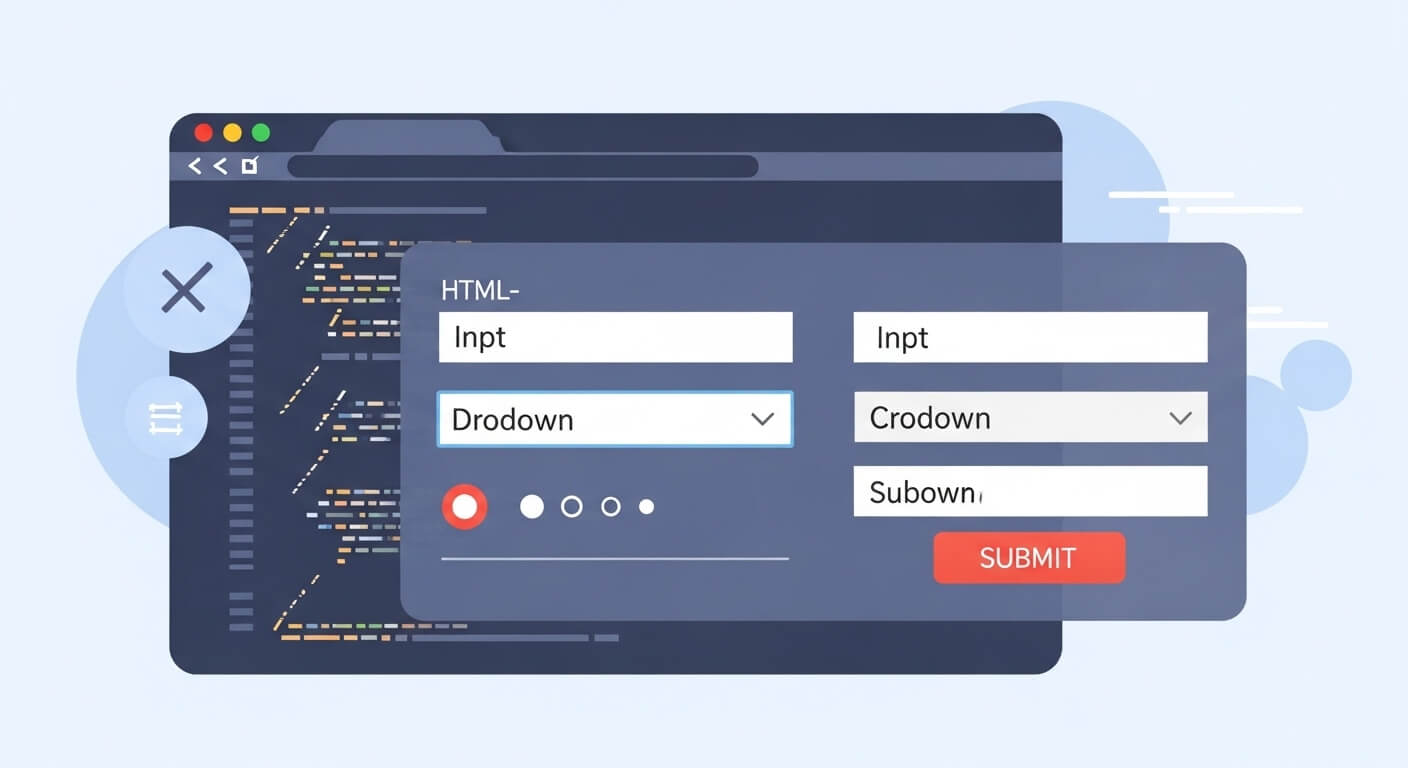In the world of web development, HTML forms are the foundation of user interaction. Whether you’re building a registration form in HTML, a contact form, or a simple search field, forms are essential.
In this article, you’ll learn the ins and outs of HTML forms — including how to use inputs, radio buttons, select dropdowns, hidden fields, and more — complete with code snippets, practical examples, and expert tips. Let’s dive in.
What Is a Web Form?
A web form is a section of a website where users input data to be sent to a server for processing. It can be as simple as a login form or as complex as a multi-step registration.
Forms are built using the <form> element in HTML. Here’s a basic example of a form:
<form action="/submit" method="POST">
<label for="username">Username:</label>
<input type="text" id="username" name="username" required>
<input type="submit" value="Submit">
</form>Inputs: The Building Blocks of Forms
HTML offers various input types to collect user data, such as text, email, password, number, date, and even input time in HTML.
Example: Input Time in HTML
<form>
<label for="meeting-time">Choose a meeting time:</label>
<input type="time" id="meeting-time" name="meeting-time">
</form>The type="time" is perfect for letting users select a specific time without typing it out manually.
HTML: How to Create a Radio Button
Radio buttons are ideal when you want users to select only one option from a list.
Example: HTML How to Create a Radio Button
<form>
<p>Select your gender:</p>
<input type="radio" id="male" name="gender" value="male">
<label for="male">Male</label><br>
<input type="radio" id="female" name="gender" value="female">
<label for="female">Female</label>
</form>By giving all radio inputs the same name attribute, you ensure only one can be selected at a time.
Select Dropdowns
The <select> tag is used to create dropdown lists, useful for state selection, categories, or country codes.
Example: Country Selector
<form>
<label for="country">Choose your country:</label>
<select id="country" name="country">
<option value="usa">USA</option>
<option value="uk">UK</option>
<option value="india">India</option>
</select>
</form>Hidden Input in HTML
A hidden input in HTML allows you to include data in the form without showing it to the user — useful for passing tracking IDs, CSRF tokens, or static values.
Example:
<input type="hidden" name="campaign" value="summer2025">Full Registration Form in HTML
Here’s a more complete registration form in HTML, including validation and proper labeling.
<form action="/register" method="POST">
<h2>Register</h2>
<label for="name">Full Name:</label>
<input type="text" id="name" name="name" required>
<label for="email">Email:</label>
<input type="email" id="email" name="email" required>
<label for="password">Password:</label>
<input type="password" id="password" name="password" required>
<label for="dob">Date of Birth:</label>
<input type="date" id="dob" name="dob">
<input type="submit" value="Create Account">
</form>Do I Need PHP for Submission Form HTML?
You might wonder: “Do I need PHP for submission form HTML?”
The answer: it depends.
- YES, if you want to process, validate, or store the form data on a server.
- NO, if you’re using JavaScript or a form-handling service like Formspree, Netlify Forms, or Google Forms.
If you’re using PHP:
<?php
if ($_SERVER["REQUEST_METHOD"] == "POST") {
$name = $_POST['name'];
echo "Thanks for registering, $name!";
}
?>Make a Contact Form HTML
Creating a get in touch form HTML is vital for any business website.
Example: Get in Touch / Contact Form
<form action="/contact" method="POST">
<h2>Contact Us</h2>
<label for="name">Your Name:</label>
<input type="text" id="name" name="name" required>
<label for="email">Email:</label>
<input type="email" id="email" name="email" required>
<label for="message">Message:</label>
<textarea id="message" name="message" rows="5" required></textarea>
<input type="submit" value="Send Message">
</form>Button Click on Autofill Triggers Enter — What to Know
A common UI issue is when a button click on autofill triggers enter and submits the form prematurely.
How to Prevent This:
<input type="text" name="username" autocomplete="username" onkeydown="if(event.key==='Enter'){event.preventDefault();}">This JavaScript snippet blocks Enter on autofilled fields to avoid accidental form submission.
HTML Form UI Design Tips
A great HTML form UI design improves user experience and reduces errors. Here are a few design tips:
- Group fields logically
- Use labels, placeholders, and fieldsets
- Provide real-time validation
- Use accessible elements (
label,aria-label) - Highlight errors with colors and messages
Add some CSS for polish:
form {
max-width: 400px;
margin: auto;
padding: 1rem;
background: #f9f9f9;
border-radius: 8px;
}
input, select, textarea {
width: 100%;
margin-bottom: 1rem;
padding: 0.5rem;
border: 1px solid #ccc;
}Action Attribute in HTML
The action attribute in HTML tells the form where to send the data upon submission.
<form action="/submit-form" method="POST">If omitted, the form submits to the same URL it’s currently on.
More Examples of a Form
Here are some extra examples of a form for various use cases:
Newsletter Signup
<form action="/subscribe">
<input type="email" name="email" placeholder="Enter your email">
<input type="submit" value="Subscribe">
</form>Feedback Form
<form>
<textarea name="feedback" placeholder="Your feedback..."></textarea>
<input type="submit" value="Send">
</form>Frequently Asked Questions (FAQs)
What is a web form in HTML?
A web form is an HTML structure used to collect input from users and send it to a server for processing.
Do I need PHP for a submission form in HTML?
Not always. PHP is useful for server-side processing, but you can also use JavaScript or third-party services.
How do I create a radio button in HTML?
Use <input type="radio"> with the same name attribute across options to allow single selection.
How do I prevent autofill from triggering a submit?
Use JavaScript to intercept the Enter key or disable automatic submission.
How do I make a contact form in HTML?
Use <form> with input, textarea, and submit elements, and optionally add action and method attributes for backend integration.


Leave a Reply